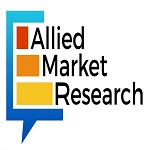
Asia-Pacific anti-inflammatory therapeutics market is expected to grow at a CAGR of 8.6% during the period of 2015-2020. The arthritis segment would continue to lead the Asia Pacific anti-inflammatory therapeutics market through 2020. China anti-inflammatory therapeutics market is forecast to grow at the highest CAGR of 13.9% during the forecast period.
List of Key Players
Companies have been adopting strategies such as collaborations, indication expansions and product launches as their key strategies to overcome the patent expiry issues of existing drugs and to gain additional market share. The key companies profiled in this report are Pfizer, Inc., AbbVie, Inc., Johnson & Johnson, GlaxoSmithKline plc, Merck & CO., Inc. Novartis AG, F. Hoffman La Roche AG, Eli Lily and Company, AstraZeneca PLC and Amgen, Inc.
Download Sample Report: https://www.alliedmarketresearch.com/request-sample/1175
Key Findings Of The Study
- China is expected to take over Japan by 2018 in the Asia Pacific anti-inflammatory therapeutics market
- India anti-inflammatory therapeutics market is projected to account for around 13% share in the Asia-Pacific market by 2020
- China and India would govern around half of the Asia-Pacific NSAID market by 2020
- Japan accounted for around 1/3rd share in the anti-inflammatory biologics market in 2014, highest among all
- Arthritis indication was the major revenue-generating segment in the APAC anti-inflammatory indication market in 2014
- Psoriasis indication is projected to grow at a CAGR of 10.7%, fastest among all indications
For Purchase inquiry: https://www.alliedmarketresearch.com/purchase-enquiry/1175
Rising incidences of autoimmune and respiratory diseases, increasing R&D investments in China and India and large amount of biosimilar drugs in the development pipeline would drive the growth of the Asia-Pacific anti-inflammatory therapeutics market. Furthermore, factors such as existence of established markets for NSAIDs and corticosteroids, large adoption of OTC (over the counter) NSAIDs, such as ibuprofen and naproxen, in China and India and government initiatives in the Asia-Pacific region would further boost the market growth. However, the adverse effects associated with prolonged consumption of drugs such as NSAIDs and corticosteroids and issues of uncertain patent legislations, such as compulsory licensing in India, would limit the market growth. High price sensitivity in countries such as India and China would be the key challenge for drug innovators to launch their patented drugs in the market.
The anti-inflammatory biologics segment dominated the market in 2014 and is expected to display the highest growth rate over the forecast period. This is due to the unmatched benefits offered by biological drugs and rapid adoption in countries like Japan along with improving healthcare access and increasing healthcare expenditures. Popularity of corticosteroids has been decreasing due to the issues of withdrawal symptoms and toxicity.
Contact Information:
David Correa
5933 NE Win Sivers Drive
205, Portland, OR 97220
United States
USA/Canada (Toll Free): +1-800-792-5285, +1-503-894-6022
UK: +44-845-528-1300
Hong Kong: +852-301-84916
India (Pune): +91-20-66346060
Fax: +1(855)550-5975
help@alliedmarketresearch.com

















